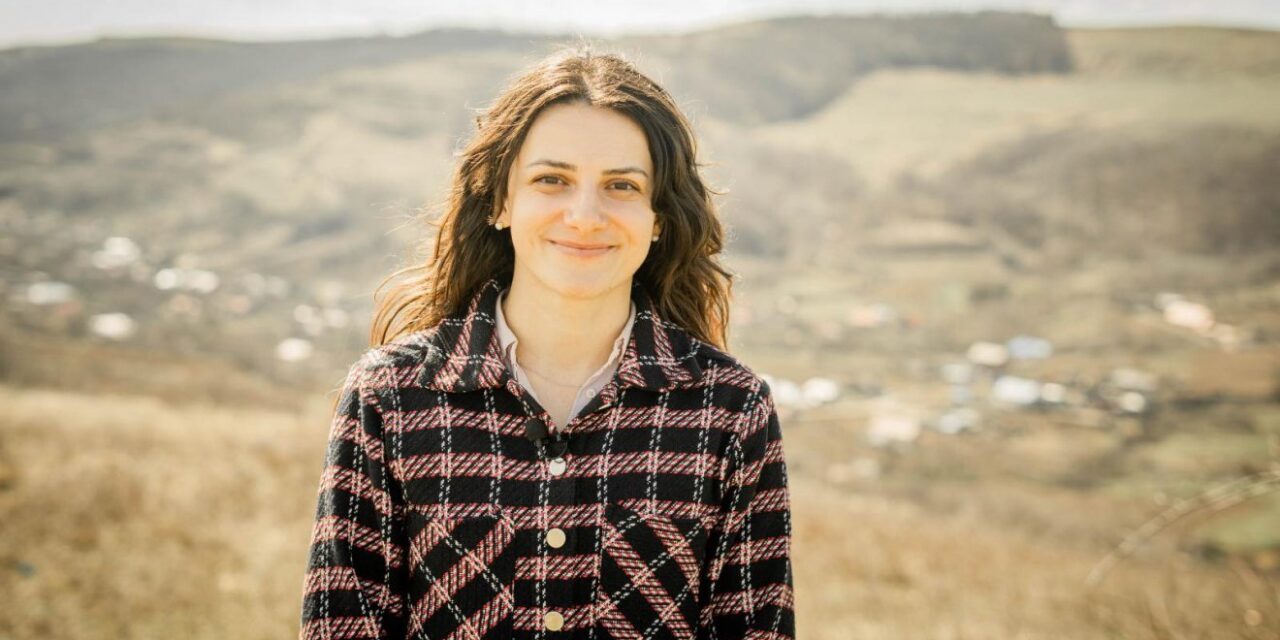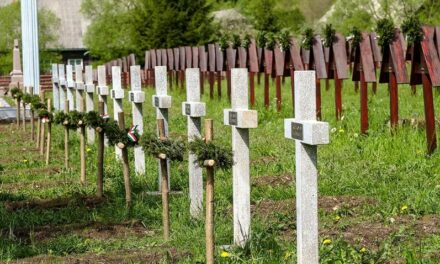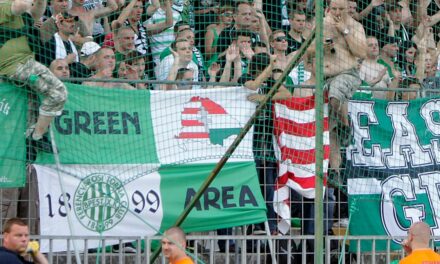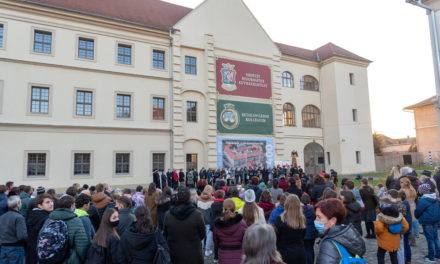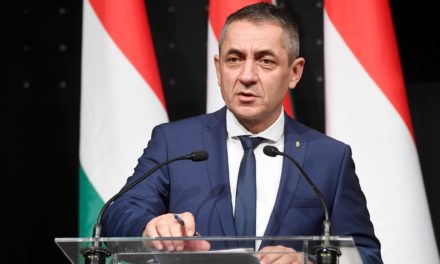Alina Gál, the new, young mayor of Gajcsána in Bákó county, spoke about her plans. Interview.
Alina Gál, the first Hungarian mayor of Gajcsána in Bákó county, elected in RMDSZ colors, is only 28 years old. He studied in Bucharest and London, but he went home to his homeland, for which he wants to do something. He is enthusiastic and ready to take on the tasks of the mayor - of which there will not be a few, because the infrastructure in the municipality that unites four villages leaves much to be desired. Alina Gál explained in an interview with Krónika that her example shows other young people from Csángó that it is indeed possible to assert yourself as a Hungarian in Csángóföld.
First of all, we congratulate you on your good result in the local elections on Sunday: for the first time, you became the Hungarian mayor of the village of Gajcsána in Bákó county, which includes four villages (he won with 38.16 percent, the village of Gajcsána has 2,467 inhabitants, of whom 286 declared themselves Hungarian - ed. .) What was the most important motivation for you to run for the post of foreman?
It was that I saw that my village was not developing at all. I am a Hungarian villager belonging to the Gajcsána village center. I was away from my home village for a long time: I graduated from the University of Economics in Bucharest, then I did my master's degree in London.
I came home in 2020 and started working at the Association of Moldavian Csángó Hungarians. In four years, I have seen that the village is not developing at all, there are many problems, but no solutions are found.
For example, the water network is not established, in my view this should not be a problem in 2024. The infrastructure looked terrible, the roads were the same as fifteen years ago. We at the Association of Csángó Hungarians in Moldavia worked on a lot of projects, and I saw how many financing options there are. I saw that there are opportunities, but the village is not developing and it should not continue like this. I said that it would be good if I could lead the village, I would try, since I already have experience with the Association in the field of applications and development. There are colleagues who stand by me and help me, so I said, well, if you have the help and the will, why not give it a try. And if the villagers feel that I am capable, that they want to elect me, then I should run.
He became mayor at a very young age, only 28 years old, and is one of the youngest mayors. As a Csángó, did you use the Hungarian language as a child in your family and during your schooling?
I was born in 1995, I will be 29 on October 29. The elementary school in our village is in Romanian, but there were Hungarian classes and Hungarian language education outside of school, so I participated in all forms of Hungarian education. At home we speak Csangó, which is an archaic Hungarian language, it's my first language, that is, my mother tongue. I spoke Csangó to my parents, grandparents, and everyone. Actually, it's not a separate language, just a dialect. Then I graduated from the University of Economics in Bucharest, and in London I did a master's degree in marketing and global marketing.
And after completing his studies in London, he decided to come home to Bákó County. A lot of people don't come home, is your case unusual in your country of origin?
Yes, many people do not come home from abroad. When I completed my studies in London, in the summer of 2020 I received a call from the Association of Moldavian Csángó Hungarians, they called me and offered me a job. Then I said why don't I come home? After all, I want to do something for Csangós, because within the framework of the Association we deal with a lot of Csangos villages. So I came back.
This dedication is certainly to be welcomed. And now, as a newly elected mayor, if you look at the vision of the future, what will be the first steps to be implemented in Gajcsána?
There are many problems at home and in the village. The first would be the construction of the water network. There is only one spring in the village, to which four villages belong. It just so happens that our village is on a hill. And since the source is somewhere below, there is not enough water, nor is the pressure enough. There should be a separate source for Magyarfalu by all means, and the other source should remain for the village of Gajcsána. Then the infrastructure is also very weak. The road that connects the villages to the village center is in terrible condition. There is a lot to avoid, the existing road is so bad that it can hardly be used. In addition to the main road, agricultural roads should also be maintained so that they are not used so much, that people do not wear them with agricultural machinery.
Is there room for improvement and development in the field of schools as well?
Of course, very much. The schools in the village must be equipped and maintained. For example, they are not digitized at all. There is only one smart board, and it was also received from the Association of Csángó Hungarians in Moldavia. And then, besides that, there are a lot of smaller and bigger problems. The mayor's office isn't digitized at all either, you can't pay taxes online, you can't pay by card. And those are important things too. Because more than half of the population lives abroad, and then the old people who cannot go to the mayor's office to pay their taxes, for example, stayed at home. And the family members of the elderly living abroad say that they would like to do this online from abroad, but there is no possibility, even though it would be a simple solution.
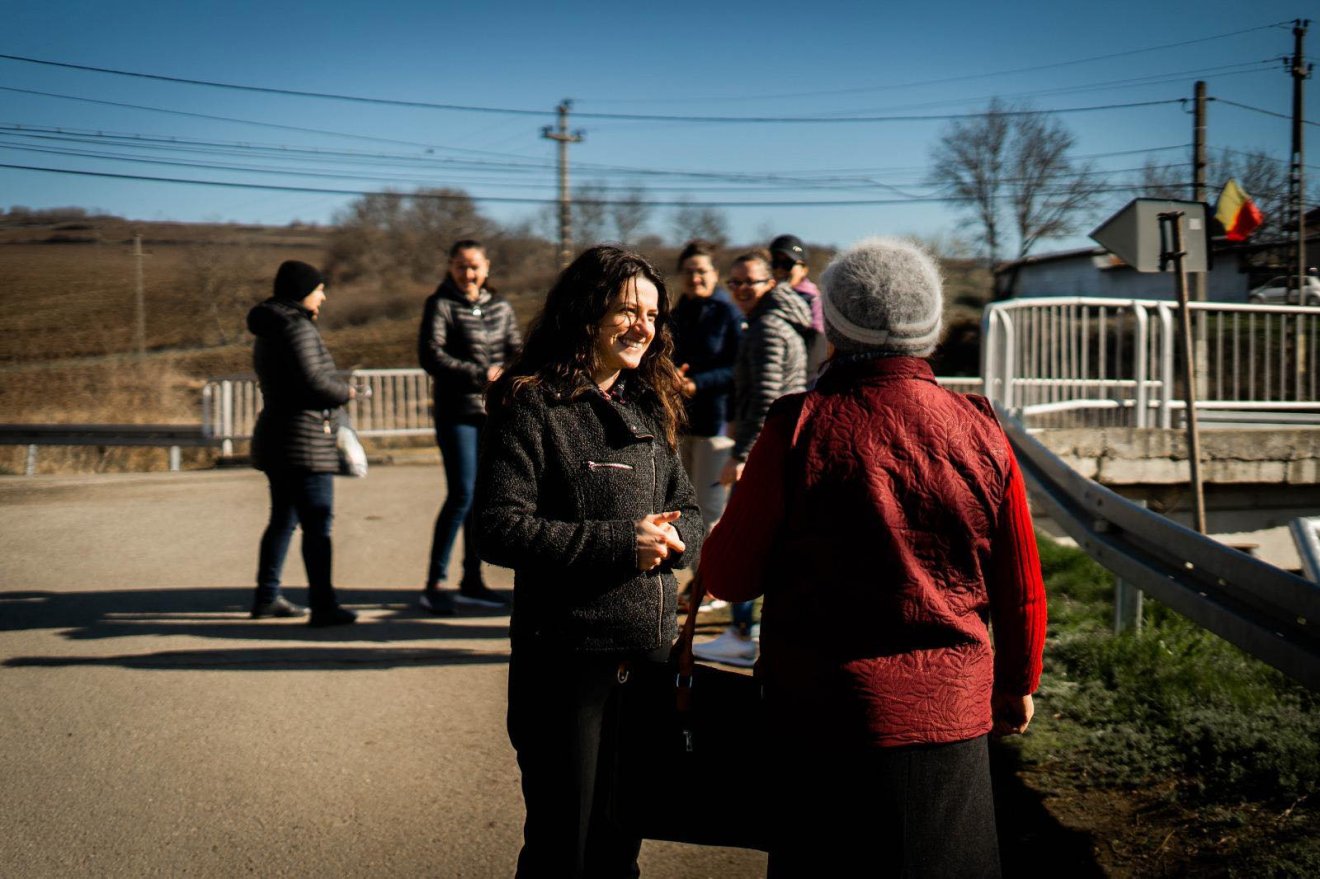
Photo: Gál Alina's collection/Chronicle
Presumably, health care should also be improved in the village.
There is a doctor's office, but only in the center of the village. So you should also think about going out to every village every week, because the old people can't get there, it's far. There aren't many bus routes either, only the school bus that takes the children. Although there are two routes in the area towards Bákó, they do not turn towards the village, so it is not good, in fact there is no connection from the villages to the center of the village. So there will be plenty to do.
Returning a bit to the elections, how do you perceive why you won the trust of the community? Maybe because he is so honest, enthusiastic, young and ready to do something?
Yes I believe. I think it mattered, I'm young and I came with a different vision than the others. I did a different kind of campaign. People saw that I tried to present what I had been able to achieve so far within the Csángó-Hungarian Association through the tenders. Quote I was able to present successful tenders, and I would like to do the same as mayor. And this was new to us in the campaign, because everyone campaigned with something different, promised something else, not very specifics. I came with concrete examples to show: yes, there are real possibilities that could be used to develop the village. They also sensed that I had energy.
And the fact that he is Csangó, that is, Hungarian, did not cause displeasure in the eyes of the Romanian majority?
Maybe to some extent yes, you could feel it to some extent. But only very little, because after all, the whole village was very open, I'll be honest. I was also afraid that if I ran with a Hungarian party, or if I was a Csangó, I would be at a disadvantage in the election. Until now, there has never been a mayor from our village, there were candidates, but they were never elected.
And how do you see who will be the main supporting force in your work, who might give you advice on problematic matters, or who you can rely on - either at the local level or on the line of the RMDSZ?
Locally, the RMDSZ chairman of Bákó County will be the one standing next to me, László Pogár. He encouraged me to go in this direction, he asked me to think about whether I wanted to be mayor. But I can also count on the RMDSZ team, Barna Tánczos and Kelemen Hunor are also very supportive. They came out to encourage me in person, and have been encouraging me ever since I succeeded. They stand by me, I feel.
Based on your four-year work at the Association of Moldavian Csangó Hungarians, how do you see the current situation, now that you have become mayor, is this an identity-strengthening factor for Csangós?
Yes, very much so. This is a great success for the csangos. I feel the same way, and so do the others. The whole crowd was very happy, a lot of people wrote that they were very happy for me. And perhaps it can be a role model for other young people from Csangó that it is possible to achieve this at home, and that it is also possible to achieve this on Hungarian lines.

